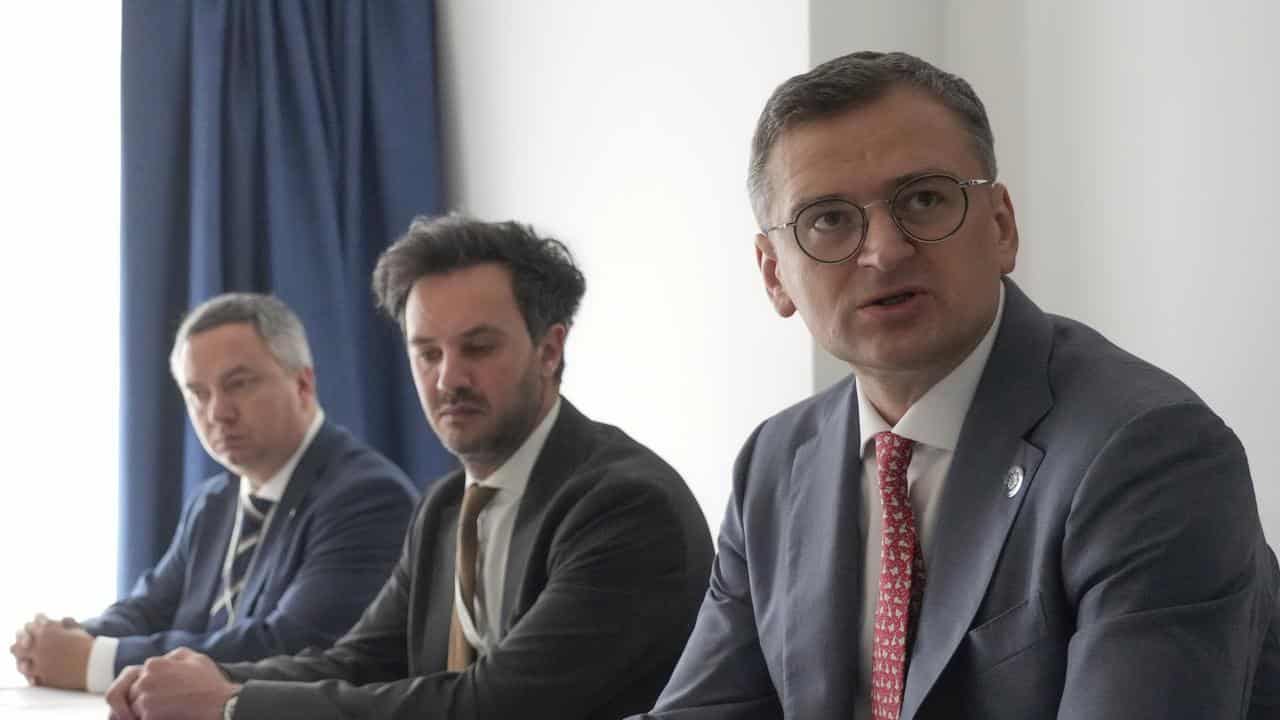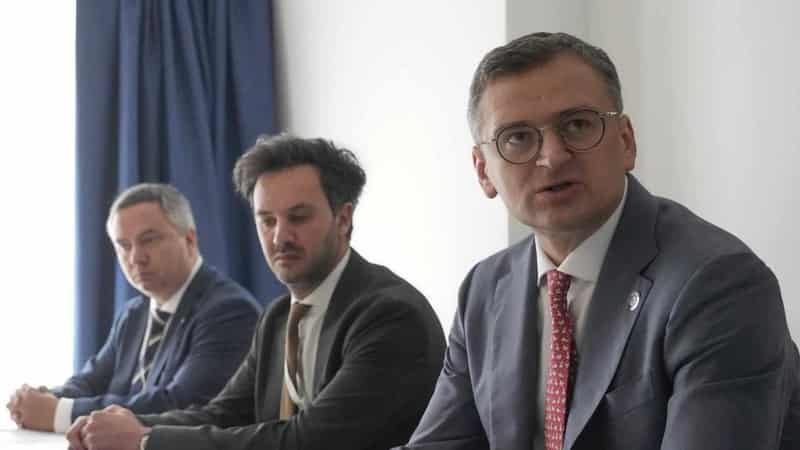
Ukraine has warned foreign ministers from the Group of Seven (G7) major powers they have to change strategy if they want Kyiv to withstand increasingly destructive Russian air assaults.
The G7 ministers meeting on the Italian island of Capri acknowledged the need to get more air defence systems to Ukraine and applauded Ukrainian Foreign Minister Dmytro Kuleba as he joined them on Thursday, the second day of their three-day gathering.
The G7, comprising Italy, Canada, France, Germany, Japan, Britain, the United States and European Union representatives, has been fiercely critical of Russia's two-year invasion of Ukraine.
However, military aid to Kyiv has slowed in recent months, with European partners apparently running low on ammunition and vital US funding blocked by Republicans in Congress.
Speaking to reporters as he arrived in Capri, Kuleba bemoaned the fact that while US, British and French forces had intervened on Saturday to help prevent Iranian missiles from hitting Israel, his own country lacked vital defences.
"The strategy of our partners in Israel seems to be in preventing damage and death ... in the last months, the strategy of our partners in Ukraine seems to be in helping (us) to recover from damage," he said.
"So our job today is to find a way where our partners will design a mechanism, a way that will allow us also to avoid death and destruction in Ukraine."
NATO secretary-general Jens Stoltenberg also took part in Thursday's G7 meetings, telling reporters beforehand the military alliance was actively seeking to send more air defence systems as quickly as possible.
"We are working at the possibility of (dispatching) more Patriot batteries to Ukraine. We are in dialogue with some specific countries," he said.
In Washington, Ukrainian Prime Minister Denys Shmyhal told reporters Ukraine had asked for additional air defence equipment and another Patriot missile battery, adding Kyiv was looking for a minimum of seven Patriot systems.
He said US and White House officials had assured the Ukrainian delegation that weapons would be supplied in a matter of weeks, not months, once a $US60.8 billion ($A94.8 billion) US aid package for Ukraine was approved by Congress.
"We hope it will take days, but not more than weeks," he said.
Domestic political wrangling has delayed delivery of the US aid, but the US House of Representatives might finally get to vote on the package this weekend, bringing some hope to G7 ministers.
Another key issue under review is how to use profits from some $US300 billion ($A468 billion) of sovereign Russian assets held in the West to help Ukraine, as EU member states hesitate over concerns about the legality of such a move.
"It's important we try and get agreement ... that's what we're discussing here. I'm in no doubt we will find a way, but we're going to have to be creative. We'll have to be flexible," said British Foreign Secretary David Cameron.









